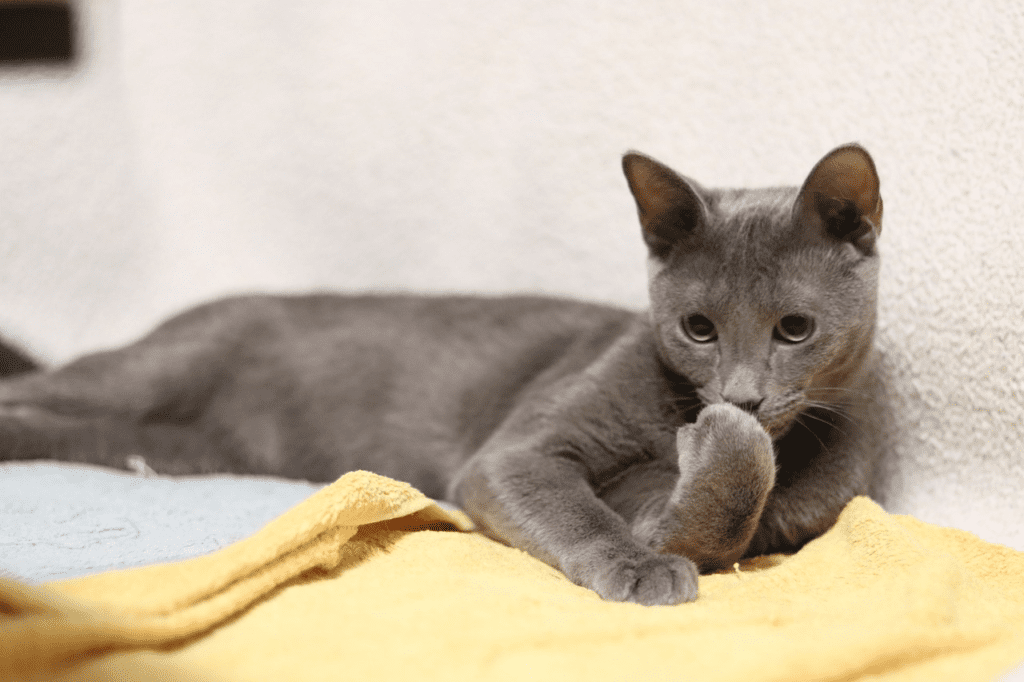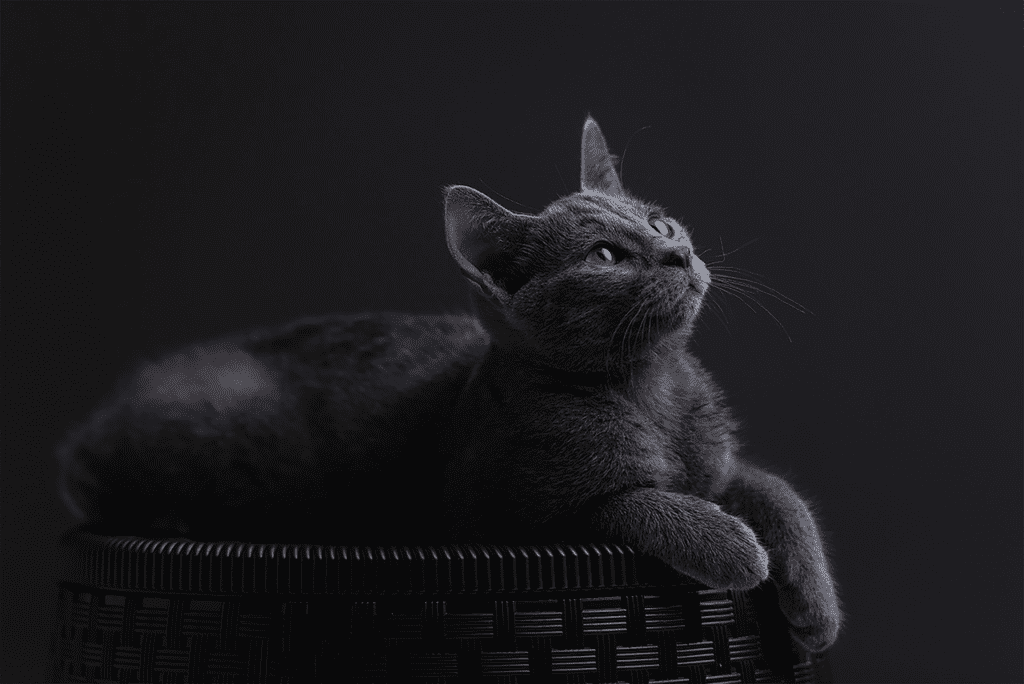Embarking on the journey of pet ownership, specifically within the realm of feline companions, can be a delightful undertaking. This article is dedicated to a particular subset of these majestic creatures – the lazy cat breeds. These are the ideal companions for those who prefer a more tranquil and serene home environment.
Overview of lazy cat breeds

Lazy cat breeds, contrary to their name, do not connote any negative characteristics. Instead, they are often synonymous with relaxed, easygoing, and laid-back attitudes. These breeds are typified by their low energy levels and a preference for a languid lifestyle, making them perfect for households seeking a calm and soothing presence.
From the regal Persian Cats to the endearing British Shorthair, the gentle Ragdoll Cats, the large and friendly Maine Coon, to the reserved and quiet Russian Blue, these felines encapsulate the essence of a leisurely existence. You can find a comprehensive list of these docile companions on our cat breeds page.
What makes a cat breed “lazy”
The term “lazy” when attributed to a cat breed is more an indication of their energy level than an actual assessment of their work ethic. Cats, by nature, are independent creatures that enjoy their personal space and solitude. However, certain breeds display a more pronounced inclination towards a relaxed lifestyle.
Three key factors contribute to a breed being considered lazy: physical traits, personality traits, and energy levels. Physical traits such as a larger size or a short, compact build can lead to reduced activity levels. Personality traits like a laid-back attitude or a preference for lounging over play contribute to this as well. Finally, lower energy levels mean these breeds are less likely to engage in high-intensity activities, preferring instead to spend their time in leisurely repose.
In the following sections, we will delve deeper into these lazy cat breeds, exploring their unique characteristics, care requirements, and how to choose the right one to match your lifestyle.
Top Lazy Cat Breeds
A fascinating array of feline companions can be found in the world of lazy cat breeds. These cats are ideal for individuals who prefer a pet with a more relaxed disposition. Here are some of the top picks to consider.
Persian Cats

Persian cats are often the poster children for lazy cat breeds. With their opulent coats and dignified demeanor, these cats are known to favor a leisurely lifestyle. They’re content to lounge around, offering the perfect companionship for those seeking a low-energy pet. Persian cats are also one of the long-haired cat breeds, making them a charming, albeit high-maintenance, choice.
British Shorthair

The British Shorthair, a domestic cat breed, is another excellent choice for a laid-back feline companion. These cats are known for their robust muscular build, round faces, and dense coat. They enjoy a good snooze and are not as playful as other breeds, making them perfect for a relaxed household.
Ragdoll Cats

Ragdoll cats, renowned for their striking blue eyes and semi-long hair, are aptly named for their tendency to go limp when picked up – much like a ragdoll. They are among the most good-natured, placid, and not to mention, lazy cats. This breed loves to be held and cuddled, making them ideal for families or anyone seeking a loving, relaxed companion.
Maine Coon

The Maine Coon, one of the large cat breeds, is a gentle giant in the cat world. Despite their large size, they are known for their easygoing nature and love of lounging around. Don’t mistake their laid-back attitude for aloofness; Maine Coons are friendly and sociable, making them a wonderful addition to any home.
Russian Blue

Russian Blue cats are another breed known for their tranquil temperament. With their plush, double-layered coat of blue and silver, they are a sight to behold. These cats are not overly active and enjoy a quiet, peaceful environment. They are intelligent and can be quite playful at times, but they are typically reserved and prefer to spend their time lounging.
In conclusion, if you’re looking for a feline companion that matches your laid-back lifestyle, these lazy cat breeds are worth considering. Their calm demeanor and love for relaxation make them the perfect pets for a tranquil home environment.
Characteristics of Lazy Cat Breeds

When it comes to lazy cat breeds, there are a few distinctive traits that could determine their level of activity. It’s not just about their personality but also their physical attributes and energy levels that contribute to their laid-back lifestyle.
Physical Traits
Lazy cat breeds typically have a robust and sturdy body structure. They are often larger in size compared to more active felines, with some breeds like the Maine Coon and British Shorthair being recognized as large cat breeds. However, size isn’t always a defining factor as there are also smaller breeds like the Persian that are known for their lower activity levels.
The coat can range from the plush and long-haired, as seen in Persians and Ragdolls, to the short-haired and dense coat of the Russian Blue. Breed-specific traits such as folded ears or large eyes don’t necessarily correlate to a cat’s laziness, as these are merely genetic traits unique to certain cat breeds.
Personality Traits
Lazy cats are typically characterized by their laid-back and easygoing personalities. They are often affectionate, loving, and enjoy the company of their human companions. These cats are not as playful or energetic as some playful cat breeds, instead, they prefer a more relaxed lifestyle with plenty of sleep and cuddles.
While they are certainly not aloof, these breeds are more content with observing their surroundings from a comfortable spot rather than constantly exploring. They are generally more patient, making them ideal companions for families or individuals who prefer a calm and tranquil atmosphere.
Energy Levels
As you might expect, lazy cat breeds tend to have lower energy levels. They’re not as inclined to engage in rigorous play or high-intensity activities. Instead, they prefer lounging around, napping, and generally enjoying a more sedate lifestyle.
However, it’s important to note that “lazy” does not equate to unhealthy. Even though these cats are less active, they still require a balanced diet and moderate exercise to maintain a healthy weight and prevent potential health issues.
In conclusion, lazy cat breeds are perfect for those looking for a relaxed and low-energy feline companion. Their distinctive physical attributes, coupled with their laid-back personalities and lower energy levels, make them ideal pets for a tranquil home environment.
Care and Maintenance for Lazy Cat Breeds

Ensuring the health and well-being of your pet is paramount. With more laid-back, less active cat breeds, it’s essential to focus on diet, exercise, and health concerns specific to their nature. Let’s explore these aspects in more detail.
Diet
Despite their relaxed demeanor, lazy cat breeds require a balanced and nutritious diet. It’s crucial to adjust the quantity and frequency of meals depending on their age, size, and health status. Many of these breeds, such as the British Shorthair and Persian, are susceptible to obesity due to their sedentary lifestyle. Hence, it’s advisable to feed them high-quality, low-fat cat food.
If you’re unsure about the right diet plan, consult with a veterinarian. They can guide you on portion sizes, meal schedules, and the best cat food brands catering to the nutritional needs of lazy cat breeds.
Exercise
Although known for their laid-back nature, exercise is still essential for these felines. Regular physical activity helps maintain an optimal weight, promotes good digestion, and keeps their mind stimulated.
To engage your cat in exercise, consider interactive toys, laser pointers, or puzzle feeders. Remember, the goal is not to exhaust them but to keep them moderately active and entertained.
Health Concerns
Just like large cat breeds, small cat breeds, and every feline in between, lazy cat breeds have their own health concerns. For instance, Persians are prone to Polycystic Kidney Disease (PKD), while Maine Coons might develop Hip Dysplasia.
Regular vet check-ups can help spot and address these issues early. Keep an eye out for any changes in behavior, eating habits, or litter box usage, as they can signal underlying health problems.
In conclusion, caring for lazy cat breeds requires a focus on balanced nutrition, moderate exercise, and proactive health monitoring. With the right care and attention, these easygoing felines can make wonderful, loving companions.
Choosing the Right Lazy Cat Breed for You

When it comes to finding the perfect feline companion, it’s essential to consider various factors that align with your lifestyle and specific needs. This guide will walk you through the process of choosing the right lazy cat breed for you.
Evaluate Your Lifestyle
The first step in selecting an ideal lazy cat breed is to evaluate your lifestyle. Individuals with a more sedentary lifestyle may find these low-energy breeds perfectly suitable. If you’re often away from home or have a busy schedule, a lower-maintenance cat like a Persian or a British Shorthair can be an excellent choice, as they require less stimulation and interaction compared to more active cat breeds.
Consider your living situation as well. If you’re living in a smaller space such as an apartment, smaller lazy breeds like the Russian Blue can adapt better to these environments.
Consider Other Pets in Your Home
If you already have other pets at home, it’s crucial to consider how a new addition to the family might affect the existing dynamic. Some lazy cat breeds, like the Ragdoll, are known for their friendly disposition and can get along well with other pets. However, other breeds might prefer solitude and should be kept in mind when considering large cat breeds or small cat breeds.
Think About Allergies and Other Health Factors
If you or anyone in your household has allergies, it might be worth considering hypoallergenic cat breeds. Breeds like the Russian Blue produce fewer allergens, making them a more suitable choice for allergy sufferers.
Additionally, individual health factors of certain cat breeds should be contemplated. For example, breeds with long coats like the Persian or Maine Coon may require regular grooming to prevent matting and hairballs.
Making the right choice when selecting a lazy cat breed can contribute significantly to a harmonious home environment and a rewarding companionship. Understanding your lifestyle, considering other pets, and thinking about allergies and health factors are key steps in this process.
Final Thoughts on Choosing a Lazy Cat Breed
Choosing the ideal feline companion goes beyond a simple preference for a breed’s physical appearance. It is also about finding a cat whose character and energy levels align with your lifestyle. If you find the quieter, more relaxed moments in life to be the most enjoyable, then opting for a lazy cat breed may be the perfect choice for you.
Lazy cat breeds like the Persian, British Shorthair, Ragdoll, Maine Coon, and Russian Blue all share a common trait, and that is their low-energy demeanor. These cats are known for their calm and laid-back nature, making them a delightful addition to any home, especially those seeking a more tranquil environment.
Remember, the term “lazy” in this context does not mean these breeds are any less lovable, affectionate, or charming. Instead, they simply have a more relaxed approach to life, preferring lounging around to constant activity. They still need adequate care, a balanced diet, and mild exercise to maintain a healthy lifestyle.
Before you embark on the journey of welcoming a new feline into your home, carefully consider your lifestyle, other pets in your household, and any allergies or health factors that may affect your decision. Understanding these factors will help you choose a breed that not only fits your home but also fulfills your dreams of a perfect feline companion.
Whether you’re drawn to the long-haired breeds like the Persian or Ragdoll, or you prefer the short-haired breeds like the British Shorthair and Russian Blue, there is a lazy cat breed that will fit into your life seamlessly. Perhaps you might even find your perfect match among the large cat breeds like the Maine Coon, known for their big size and even bigger hearts.
In conclusion, a lazy cat breed is an excellent choice for those who prefer a lower-energy pet. These breeds still require care and love, but they will likely be content with a cozy spot on the couch, your lap, or even their own dedicated cat bed. Consider all the factors carefully and make a decision that brings you the most joy. After all, owning a cat is about companionship, love, and enjoying every moment you share together.

